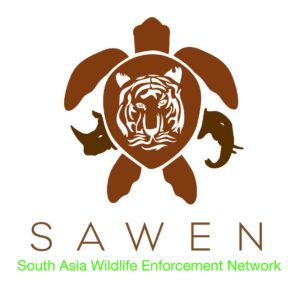
What: SAWEN Conference
Where: Kolkata
When: 8-10 May, 2018
- South Asia Wildlife Enforcement Network (SAWEN) in it’s two days (8-10 May 2018) conference in Kolkata, India adopted many proposals to curb wildlife crime in the South Asian Region.
- Network’s seven members out of eight agreed on having an operational framework for strengthening the regional body to combat wildlife crime. Pakistan skipped the fourth conference of SAWEN held in the Kolkata.
About the SAWEN
- South Asia Wildlife Enforcement Network (SAWEN) is an inter-governmental wildlife law enforcement support body of South Asian countries.
- It is comprised of eight countries in South Asia: Afghanistan, Bangladesh, Bhutan, India, Maldives, Nepal, Pakistan and Sri Lanka.
- It was was formally launched during the Second Meeting of the South Asia Experts Group on Illegal Wildlife Trade held on January 29-30, 2011 in Paro, Bhutan.
- The SAWEN Secretariat was formally established on April 20, 2011 in Kathmandu, Nepal.
- It aims at working as a strong regional inter¬governmental body for combating wildlife crime by attempting common goals and approaches for combating illegal trade in the region.
- The Union Cabinet on April 13, 2016, chaired by the Prime Minister Shri Narendra Modi had given its approval for India adopting the Statute of the South Asia Wildlife Enforcement Network (SAWEN) and India and becoming its formal member in order to strengthen ties with the member countries in controlling the trans-boundary wildlife crime through communication, coordination, collaboration, capacity building and cooperation in the region.
- Adoption of SAWEN statute envisions India being part of the regional inter¬governmental body in combating wildlife crime in the region and beyond.
- Objectives: Following objectives have been set to attain the goal:
- To take initiatives for bringing harmonization and standardization in laws and policies of member countries concerning conservation of fauna and flora;
- To document the trend of poaching and illegal trade, and related threats to the natural biodiversity within and across countries in the region;
- To strengthen institutional responses to combat wildlife crime by promoting research and information sharing, training and capacity building, technical support, sharing experiences and outreach; and
- To encourage member countries to prepare and implement their National Action Plans in curbing wildlife crime and to collaborate towards effective implementation.
- The South Asia region is very vulnerable to illegal traffic and wildlife crimes due to presence of precious biodiversity and large markets as well as traffic routes for wildlife products in the south East Asian region.
- The collaboration in harmonising as well as enforcing the wildlife protection in the region is considered very important for effective conservation of such precious biodiversity.

